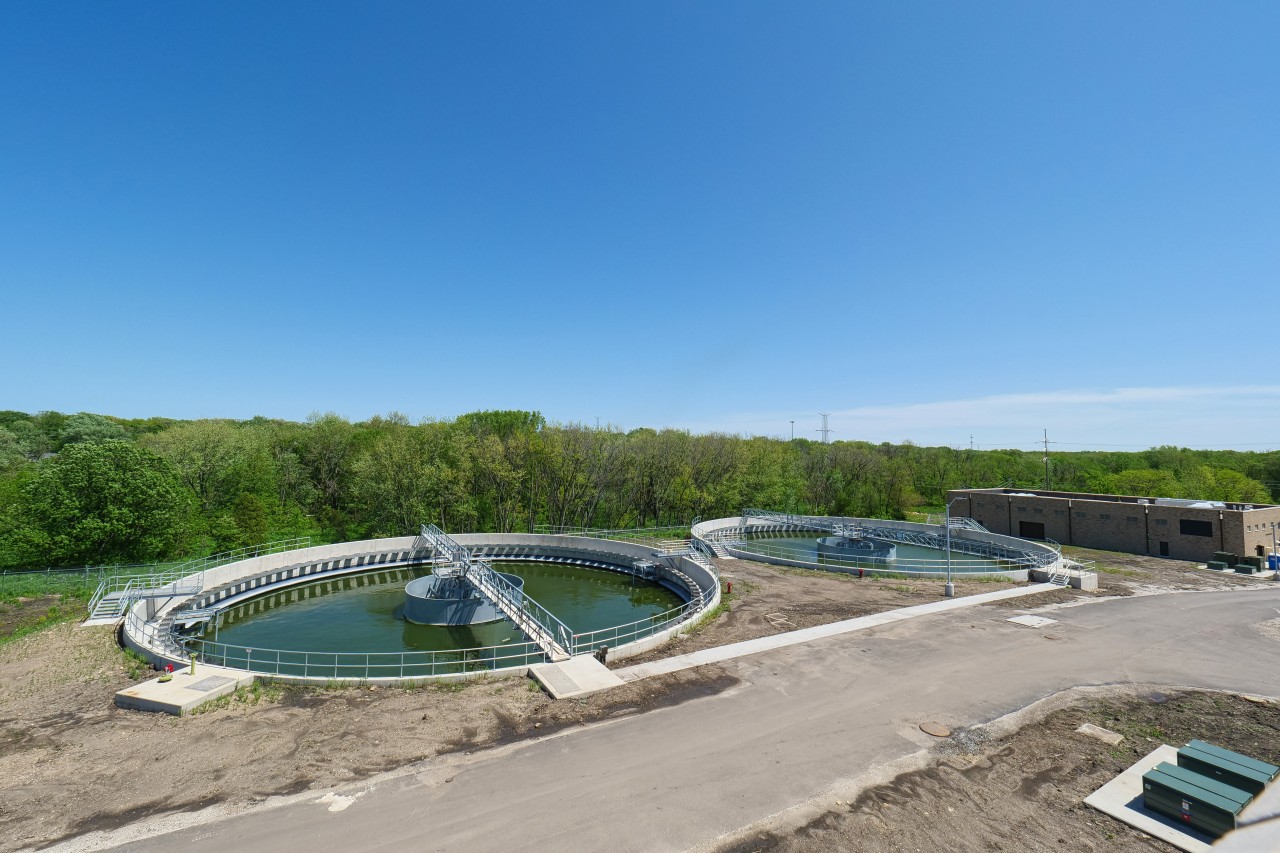Modern wastewater treatment plants offer advantages
Traditional sewage treatment plants are large outdoor facilities that require significant energy consumption and high operational and maintenance costs. Most traditional treatment plants adhere to the Environmental Protection Agency (EPA)-mandated secondary treatment standards, which are minimum, technology-based requirements.
In contrast, the effluent undergoes tertiary treatment in modern wastewater treatment plants to achieve purification levels that make the water safe for reuse. New treatment standards, effluent limitation guidelines, higher energy costs and limited treatment capacity are some reasons for upgrading traditional sewage treatment plants to modern ones. Modern wastewater treatment plants are cost-effective overall compared to conventional ones.
In this blog post, we discuss the advantages of modern wastewater treatment plants and why communities should partner with experts like Fehr Graham to upgrade aging publicly owned treatment plants (POTWs).
What are modern wastewater treatment plant advantages?
In recent years, remarkable advancements have been made in wastewater management. Modern treatment plants use multistep advanced processes involving physical, chemical and biological wastewater treatment to ensure an environmentally safe effluent that can be discharged or reused. The following table highlights the key benefits of modern wastewater treatment plants for communities.
|
Modern wastewater treatment plant advantages |
|
|
Environmental benefits |
|
|
Economic benefits |
|
|
Community benefits |
|
Recent innovations, such as advanced automation systems, have made real-time monitoring, data analysis and process control possible at wastewater treatment plants. The integration of digital technologies has enabled remote operation and maintenance of treatment facilities. Digital twins – the virtual replica of treatment plants, let operators duplicate different operational scenarios to determine the most appropriate settings for optimal treatment without disrupting actual processes.
How Fehr Graham can help communities develop modern wastewater treatment plants
Now that you know about the advantages of modern wastewater treatment plants, the next question is how to build one for your community. While repairs, retrofits, upgrades or expansion are often considered the go-to methods to modernize wastewater treatment facilities, integrated wastewater management and green infrastructure adoption are holistic and comprehensive approaches to upgrading wastewater infrastructure. An expert can help determine the best course of action.
At Fehr Graham, we are a team of wastewater engineers committed to improving and strengthening wastewater infrastructure across the Midwest and beyond. From planning and developing to executing wastewater upgrades and retrofits, we have helped municipalities upgrade and retrofit their wastewater treatment plants.
Some of our past projects include:
- Upgrading South Beloit Wastewater Treatment Plant.
- Upgrading the Wastewater Treatment Plant in Winthrop, Iowa, to meet ammonia and E.coli limits.
- Upgrading Monticello, Illinois, Wastewater Treatment Plant.
At Fehr Graham, we understand the financial challenges communities face while considering upgrading their wastewater infrastructure. Lack of funds is the primary reason communities delay developing modern wastewater treatment plants. In addition to our wastewater engineering expertise, we also offer in-house funding solutions to help communities create customized grant applications and secure funding for upgrading and retrofitting their local POTWs.
To learn more about modern wastewater treatment plant advantages, contact us or call 217.352.7688.

|
Matthew Johnson is a Professional Engineer and Structural Engineer with comprehensive experience leading water and wastewater infrastructure projects. As one of the firm’s owners, he works with clients to find solutions that best meet their needs. Matthew’s a firm believer that one size (or solution) does not fit all, so he listens to clients to help them get the outcome that’s best for their situation. He has a knack for explaining complex situations in easy-to-understand ways so clients can make the best decisions. He can be reached at This email address is being protected from spambots. You need JavaScript enabled to view it.. |


